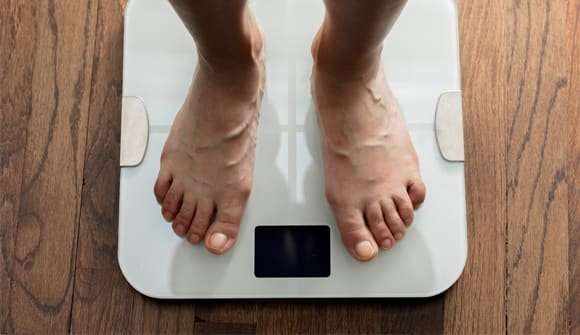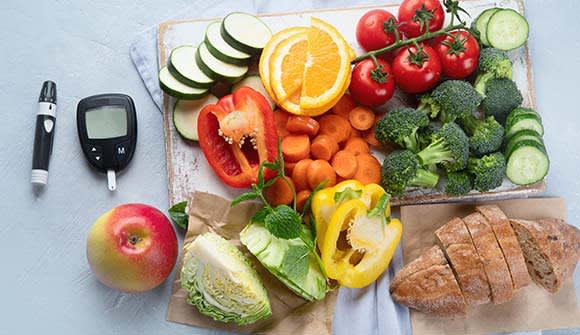Can gluten protect you from type 2 diabetes?
Separate fact from fiction about gluten consumption.
Article Author: Vikki Mioduszewski
Article Date:

After spending years eating rice-flour cookies and pasta, health-conscious consumers believe they’ve found a reason to put gluten back on the menu.
A 2017 study linked low-gluten diets to type 2 diabetes. Flipping that on its head—could that mean eating more gluten will protect you from diabetes, people wondered?
Not so fast.
The average person should neither increase nor decrease gluten as a means to a healthier diet, said Jonathan Gonzalez, MD. Consuming more gluten as a protective factor against diabetes is simply an overreach.
“When the study came out, I got a lot of questions from patients asking me about this,” said Dr. Gonzalez, a family physician with Baptist Primary care at 900 Beach Blvd. who specializes in wellness and also, Type 2 diabetes. “But, I think they should take this out of their heads, the idea that they’re going to eat more gluten and they’re not going to get diabetes. I would focus more on exercise and maintaining a balanced diet.”
On the other hand, many people who eliminate gluten from their diets aren’t really getting health benefits either, he said.
The march towards gluten-free
Gluten is a protein found in cereal grains such as wheat, rye and barley. It’s the substance that gives dough its elasticity. Most people associate gluten with bread and other baked goods, but gluten may also show up in some not-so-obvious places such as bouillon cubes, hot dogs and beer.
People with celiac disease — about 1 percent of the population — must avoid gluten. For them, gluten damages the lining of the small intestine, causing digestive problems.
But many more people limit glutens in their diets, saying it simply makes them feel better.
Gluten-free substitutes now appear in grocery stores, restaurants, and even ballparks. About 30 percent of Americans say they are actively trying to remove gluten from their diets.
Dr. Gonzalez said that’s unnecessary.
A fad diet
There’s a difference between people who need to avoid gluten and people who don’t. People with celiac disease won’t be able to tolerate foods with gluten at all. They may have abdominal pain, diarrhea, nausea and vomiting. Doctors can positively diagnose celiac by doing a biopsy of the intestine.
“Usually you’ll find celiac disease in younger women in their mid-20s and 30s, and sometimes in men,” Dr. Gonzalez said. “If you’re coming in at 60 years old, it’s unlikely. You would have been diagnosed way before then.”
Some people don’t have celiac disease, but still have symptoms showing they are sensitive to gluten. Usually, it’s a diagnosis of exclusion, after other causes have been ruled out.
There are many more people who can tolerate gluten, but who have adopted a gluten-free diet because they believe it’s healthier.
“We’ve made it such fad,” Dr. Gonzalez said. “About half the people who avoid gluten probably don’t have any sensitivity to it.”
Not a silver bullet for diabetes
As some people were advocating the health benefits of going gluten-free, others were wondering if there were health risks. Gluten-free foods typically have less dietary fiber and micronutrients than foods with gluten.
A Harvard study released in March 2017 suggested a correlation between low-gluten diets and increased risk for type 2 diabetes.
Researchers studying nearly 200,000 people over a 30-year period found those who had consumed the most gluten had 13 percent less risk of developing Type 2 diabetes than those who had consumed the least.
Dr. Gonzalez cautioned against assuming too much from those results. The gluten-diabetes connection was not the original purpose of the study, but instead, more of an incidental finding.
“Even the people who did the study said it needed a lot more research,” Dr. Gonzalez said. “I don’t think any doctor would be confident enough to tell a patient to increase their gluten to prevent diabetes.”
The cereal fiber which contains gluten does promote the digestion of glucose and carbohydrates. But lots of foods have fiber, he said. And eating more fiber is only one part of a larger chain reaction of things you need to do to prevent diabetes.
A Baptist primary care doctor can help you manage your health
If you are concerned about your health and wellness, or specifically type 2 diabetes prevention, and you don’t currently have a primary care physician, visit Baptist Primary Care to find a doctor near you. For a free wellness coaching session, visit Baptist Wellness Centers.



